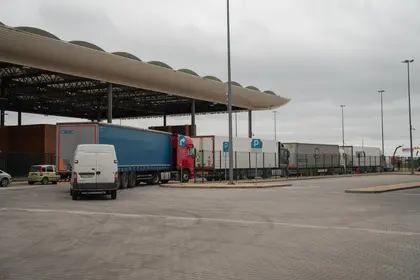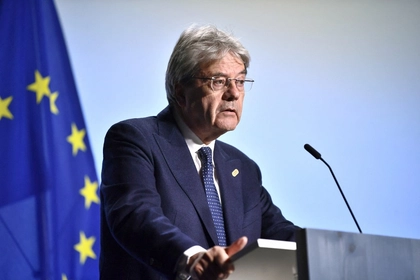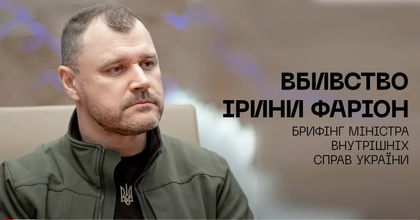Polish farmers continue to block the movement of trucks through six crossing points at the Ukraine-Poland border, reported Oleksandr Kubrakov, Ukraine's Ministry of Communities and Territories Development, on Monday, Feb. 19.
“The blockade of the border is a direct threat to the security of a defending country. Such actions have a negative impact on our opposition to a common enemy called ‘Russia.’ Women and children who sought refuge from the war and, due to various reasons, return home cannot become hostages of business interests,” Kubrakov said.
JOIN US ON TELEGRAM
Follow our coverage of the war on the @Kyivpost_official.
"Such actions and examples of inhumane treatment of Ukrainians at the EU border can be used by the Russian special services to incite an artificial conflict between our countries. We are waiting for specific actions by our Polish colleagues to prevent such situations and totally solve the problem,” he added.
He has held urgent talks with Jacek Siewiera, the Head of the National Security Bureau of Poland, as social media posted a video, showing Polish protesters blocking the passage of passenger buses.
According to Kubrakov, Ukraine's Embassy in Warsaw is in 24/7 communication with the Polish police and border services, so immediately responds to reports of blocking of passenger transport.
At the same time, there are no physical queues for departure from the Ukrainian side due to ‘e-cherha’, the Ukrainian digital service for fast border crossing, the Ministry added.

EU Transfers €1.5 Bln Raised From Russian Assets for Ukraine
According to Ukraine's State Border Guard Service, Polish farmers let only a few trucks across the border in both directions every hour.
“On Feb. 18, no trucks were allowed in the direction of Jagodzin. Passenger cars and buses are registered as usual. This morning, in the six directions, a total of about 2,900 trucks are waiting in Poland for the possibility of crossing the border towards Ukraine.
Most of them are in the direction of Jagodzin and Krakovets, - said Andriy Demchenko, the spokesperson of the State Border Guard Service, in a comment to "Ukrinform".
He also commented on the information that Polish farmers are going to completely block the border with Ukraine from tomorrow, Feb. 20.
“We have not received any information that other routes will be blocked. There are nine routes operating at the border with Poland, six of which are currently blocked or traffic is significantly complicated. Among them are the four largest crossing points for cargo transport weighing more than 7.5 tons,” Demchenko added.
Meanwhile, Serhiy Derkach, Deputy Minister of Communities and Territories Development, who is in contact with his Polish counterpart, Paweł Gancarz, stated that the situation at the border is becoming even more critical at the moment.
“The most critical situation is at the crossing point Jagodzin - Dorohusk, where the movement of freight transport has completely stopped. Humanitarian, perishable cargo as well as fuel are not allowed there. This has a direct impact on our defense capability,” he said.
Moreover, according to the official, empty trucks going to collect critically needed goods cannot leave Ukraine across this point.
“They are forced to wait in a more than 15-kilometer queue for empty ones at the checkpoint Nižankovići - Malhovići, where registration to ‘e-cherha’ is temporarily suspended. So, drivers literally live on the road without normal conditions,” added Derkach.
Meanwhile, the European Commission has announced a meeting of the coordination platform on export and transit of Ukrainian agricultural products amid the blockade of the border with Ukraine by Polish farmers.
“Contacts continue between the European Commission and all affected member states. We believe that the right forum for finding medium and long-term solutions is the EU coordination group that will meet tomorrow,” Olof Gill, the spokesman of the European Commission for Trade & Agriculture, said.
According to him, “it is very important that national authorities protect passenger and freight transport, which is essential for the proper functioning of our supply chains and the EU internal market.”
You can also highlight the text and press Ctrl + Enter






